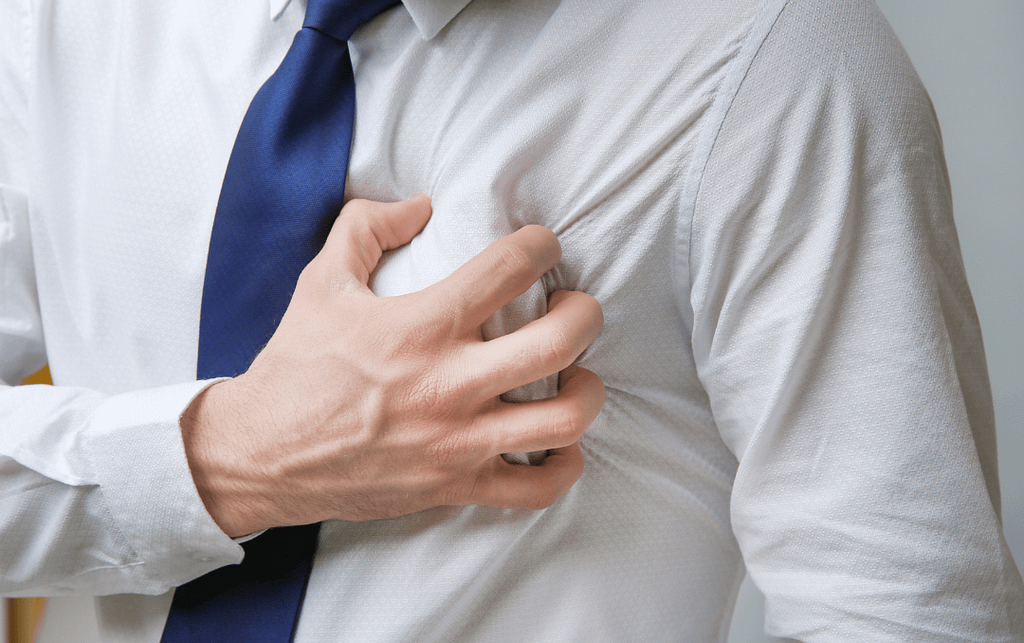Heart attacks are one of the leading causes of death, and when it comes to certain types, like the “widow maker” heart attack, time is of the essence. With only a 12% survival rate, it’s essential to recognize the early signs and know what to do if you witness someone having a heart attack.

Dr. Brian Loc from MercyOne Dubuque Medical Center and Dr. Ali Albaghdadi from MercyOne Clinton Medical Center explain the importance of early care, bystander response, and how recognizing the signs of heart trouble can save lives.
What Is a Widow Maker Heart Attack? #
The heart relies on three major arteries to deliver oxygen-rich blood: one feeds the front wall of the heart, one feeds the left side, and one feeds the right side. A widow maker heart attack, also known as a myocardial infarction, occurs when the largest artery—responsible for 50% of your heart muscle’s blood supply—is blocked. When this happens, the lack of oxygen can cause serious damage, leading to cardiac arrest and death.
Dr. Loc explains: “When that artery is blocked, major damage can happen quickly, so time is critical. The longer you wait to get care, the more damage your heart sustains.”
Symptoms of a Heart Attack #
It’s important to recognize that widow maker heart attacks present the same symptoms as other heart attacks. Knowing these symptoms can help you act quickly:
- Sudden chest pain
- Pain in the middle or left side of the chest
- Shooting pain in the arm, neck, or jaw
- Nausea
- Sweating
- Dizziness
- Shortness of breath
Dr. Albaghdadi emphasizes: “Don’t wait to see if the pain goes away. If you experience any of these symptoms, call 911 immediately.”
Early Heart Attack Care (EHAC) #
In some cases, you may notice warning signs days or even weeks before a heart attack occurs. These early symptoms are crucial indicators that something is wrong, and recognizing them early can significantly reduce damage to the heart. Signs of an early heart attack include:
- Nausea
- Pain that travels down one or both arms
- Excessive drowsiness
- Anxiety or a feeling of unease
- Tightness in the chest
- Pain in the back or jaw
- Dizziness or lightheadedness
- Cold sweats
- Shortness of breath
Dr. Loc explains: “Recognizing these symptoms early and seeking help as soon as possible can prevent complications and improve your chances of survival.”
What to Do as a Bystander #
If you’re a bystander and suspect someone may be having a heart attack, your actions could save a life. Here’s what you can do:
- Stay Calm: Panic will only make the situation worse. Staying calm helps you think clearly and respond appropriately.
- Call 911 Immediately: Time is critical in the event of a heart attack, so don’t hesitate to call for emergency services.
- Lay the Person Down: If they are feeling faint or dizzy, help them sit or lie down to avoid injury.
- Follow Medical Instructions: If you’re on the phone with 911, follow the dispatcher’s instructions closely.
- Perform CPR (if trained): If the person becomes unconscious and you’re trained in CPR, begin chest compressions until medical help arrives. If an automated external defibrillator (AED) is available, use it as directed.
Preventing Heart Attacks #
Prevention is always better than treatment. There are several steps you can take to lower your risk of heart attacks:
- Stay Active: Aim for at least 150 minutes of moderate exercise per week, such as brisk walking or cycling.
- Improve Your Diet: Reduce your intake of red meat, fatty, and oily foods. Focus on heart-healthy foods like fruits, vegetables, lean proteins, and whole grains.
- Monitor Blood Pressure: Keeping your blood pressure around 120/80 is ideal for heart health.
- Maintain Healthy Cholesterol Levels: Aim for a cholesterol level below 140 to reduce your risk of heart disease.
- Regulate Sugar Intake: Diabetes is a major risk factor for heart attacks, so watching your sugar intake can help prevent the onset of the disease.
- Quit Smoking: Smoking increases blood pressure and raises your risk of both heart attacks and strokes. Quitting smoking significantly improves your heart health.
Final Thoughts #
Being aware of the early signs of a heart attack and knowing what to do as a bystander can save lives. As a caregiver, it’s vital to stay informed about heart health and how to act in emergencies. If you or a loved one shows symptoms of a heart attack, don’t wait—seek medical help immediately. And remember, adopting a heart-healthy lifestyle can go a long way in preventing heart attacks in the future.
At Parenting Our Parents (POP), we’re committed to providing caregivers with the resources they need to keep themselves and their loved ones healthy. Stay informed, take action when needed, and always prioritize heart health.




